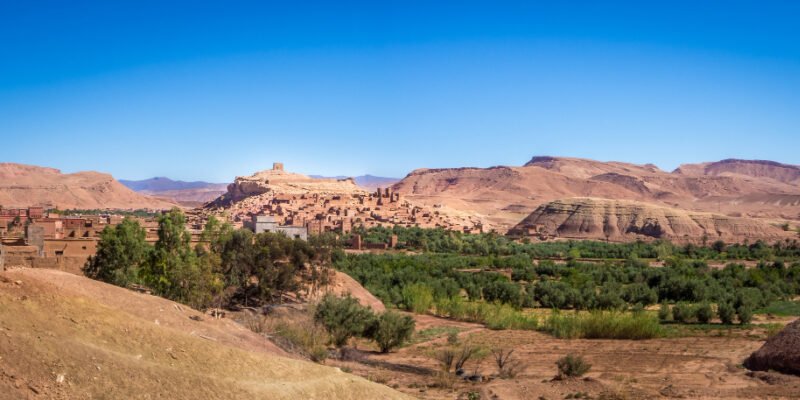Morocco is a country renowned for its rich history, vibrant culture, and stunning natural beauty. From the bustling cities of Marrakesh and Fez to the rolling sand dunes of the Sahara Desert and the rugged mountains of the Atlas, there is something for everyone planning to travel to Morocco in this diverse and captivating country.
As a first-time visitor, it can be overwhelming to know where to start and what to see when you travel to Morocco. In this comprehensive guide, we’ll take you through everything you need to know to plan your trip, including the best places to visit, how to get around, and what to expect in terms of food and culture.
Planning Your Trip
Visas and Passports
Before you head to Morocco, it’s essential to make sure you have the correct travel documentation. Most visitors will need a valid passport and a tourist visa, which can be obtained upon arrival in Morocco. However, it’s always best to check with your local Moroccan embassy or consulate for the most up-to-date information and requirements.
Best Time to Visit
Morocco has a diverse climate, with temperatures ranging from the mid-20s in the winter to the mid-30s in the summer. The best time to visit will depend on your personal preferences and what you want to see and do while you’re there.
If you’re planning to spend time in the desert, the summer months can be extremely hot, and temperatures can reach well over 40°C. Winter can also be chilly, especially at night, so make sure you bring warm clothing.
The spring and autumn months offer a more temperate climate, making them ideal for exploring the cities and countryside.
How to Get There
The easiest and most convenient way to travel to Morocco is by air, with many international airlines flying directly to cities such as Marrakesh and Casablanca. From there, you can take a taxi or a local bus to your final destination.
Accommodation
Accommodation in Morocco ranges from traditional riads to modern hotels and resorts. Riads are a traditional type of Moroccan house with a central courtyard, and they offer a unique and authentic experience for travelers. Hotels and resorts offer more modern amenities and are often a good option for families or those seeking more luxurious accommodations.
When booking your accommodation, consider your budget and personal preferences, and don’t be afraid to shop around to find the best deal.
Exploring Morocco
Marrakesh
Marrakesh is a bustling and vibrant city, often referred to as the “Red City” due to the red walls and buildings that surround the historic medina. Here, you can explore the narrow, winding streets and market stalls of the medina, visit the iconic Koutoubia Mosque, and take in the sights and sounds of the bustling Djemaa el-Fna square.
Fez
Fez is one of Morocco’s oldest cities and is known for its well-preserved medieval architecture, including the stunning Al Quaraouiyine mosque and university, one of the world’s oldest universities.
Atlas Mountains
The Atlas Mountains are a range of mountains in Morocco that offer breathtaking views and a chance to escape the heat of the city. Here, you can go on a guided trek, visit traditional Berber villages, and learn about local life and culture.
Sahara Desert
The Sahara Desert is one of Morocco’s most iconic attractions, and a visit here is an experience you’ll never forget. Whether you choose to go on a guided tour, take a camel ride, or spend the night in a traditional desert camp, you’ll be amazed by the beauty and vastness of this incredible landscape.
Coastal Cities
Morocco’s Atlantic and Mediterranean coasts offer a chance to relax and enjoy some of the country’s beautiful beaches. Cities such as Essaouira, Asilah, and Tangier are popular destinations for those looking for a beach holiday, with plenty of opportunities for water sports, sunbathing, and exploring local markets and historic sites.
Food and Culture
Moroccan cuisine is a fusion of Berber, Arab, and Mediterranean flavors and ingredients, and is renowned for its rich, flavorful dishes. From the spicy tagines to the sweet pastries, there is something for everyone, and Moroccan food (Tajine, Tanjia, Couscous, Bastila, and many others) is an integral part of the country’s culture and heritage.
When it comes to culture, Morocco is a country steeped in tradition, with a rich history and diverse population. From the traditional music and dance to the vibrant markets and festivals, there is always something to see and experience.
Last but not least
Morocco is a captivating and diverse country that offers something for everyone, from vibrant cities and stunning natural beauty to a rich culture and delicious food. Whether you’re looking for adventure, relaxation, or a unique cultural experience, a trip to Morocco is an unforgettable journey that you won’t soon forget.
Morocco is generally considered safe for tourists, but it’s always best to exercise caution and be aware of your surroundings, especially in larger cities and tourist areas.
The currency used in Morocco is the Moroccan Dirham.
The cost of traveling in Morocco will depend on your personal preferences and travel style. Accommodation, food, and transport can all be relatively affordable, but more luxurious options and activities will be more expensive.
The official languages of Morocco are Arabic and Amazigh, but many Moroccans also speak French, English, and Spanish.
The length of your trip to Morocco will depend on your interests and how much you want to see and do. A minimum of 7 to 10 days is recommended, but you could easily spend several weeks or more exploring this incredible country.




